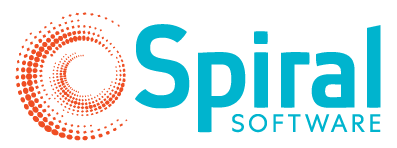The TAME Trial
The TAME trial is a phase III, multi-centre, randomised, parallel-group, clinical trial in resuscitated cardiac arrest patients admitted to the intensive care unit to determine whether targeted therapeutic mild hypercapnia (TTMH) improves neurological outcome at 6 months compared to standard care (targeted normocapnia) (TN).
A Novel Trial Conjoined with TTM2
Background
For patients admitted to the ICU after a cardiac arrest, neurological injury leading to the withdrawal of life support or neurological impairment are the most common outcomes following cardiac arrest.
In studies using detailed instruments, cognitive impairment is reported to be present in 50% of survivors of cardiac arrest discharged from the hospital; this is associated with lower quality of life and increased caregiver strain.
Many interventions have been tested in order to lower mortality and improve neurologic function in patients resuscitated after out-of-hospital cardiac arrest. Despite promising results in experimental models, all but one have failed in clinical trials. To date, induced hypothermia is the only intervention that has shown promising results in preliminary clinical trials.
An out-of-hospital cardiac arrest has an estimated incidence of approximately 1 per 1,000 persons per year (approximately 25,000 individuals in Australia each year).
Australian mortality rates for heart attack range between 87-94%.
For each resuscitated cardiac arrest patient admitted to ICU who survives to hospital discharge, admission costs alone exceed $120,000. Moreover, the estimated ongoing community-based costs for each patient with moderate cerebral injury is AUD$34,000/year.
Trial Design
An international, multi-centre, parallel-group, phase III, non-commercial, randomised, controlled trial (RCT) aiming to enrol 1700 patients
Participants with out-of-hospital cardiac arrest will be randomised to targeted temperature management with hypothermia at 33°C, or normothermia and early treatment of fever equal to or greater than 37.8°C.
Trial Design
TTM2 and TAME share many trials characteristics and collect similar data-points so our software was used for both studies.
Primary Outcome
The TTM2 study aims to assess the beneficial and harmful effects of post-ischaemic hypothermia (33°C) when compared with normothermia and early treatment of fever (37.8°C) in unconscious adults after out-of-hospital cardiac arrest.
Supporters
Endorsement: Australian and New Zealand Intensive Care Society Clinical Trials Group (ANZICS-CTG) and the Irish Critical Care – Clinical Trials Group (ICC-CTG)
Coordinating centre: The ANZIC-RC, School of Public Health and Preventative Medicine, Monash University
Chief Investigator: Associate Professor Glenn Eastwood RN BN BN(Hons) GDipNurs(CritCare) PhD.
Contact: Associate Professor Glenn Eastwood, Department of Intensive Care, Austin Hospital, 145 Studley Road, Heidelberg, Victoria 3084, Australia. Phone: +61 3 9496 4835 Fax: +61 3 9496 3932 Email: glenn.eastwood@austin.org.au
Twitter: Follow news and updates from the TAME trial page on Twitter – https://twitter.com/TAMEtrial
For more details, visit the TAME Trial on Twitter


